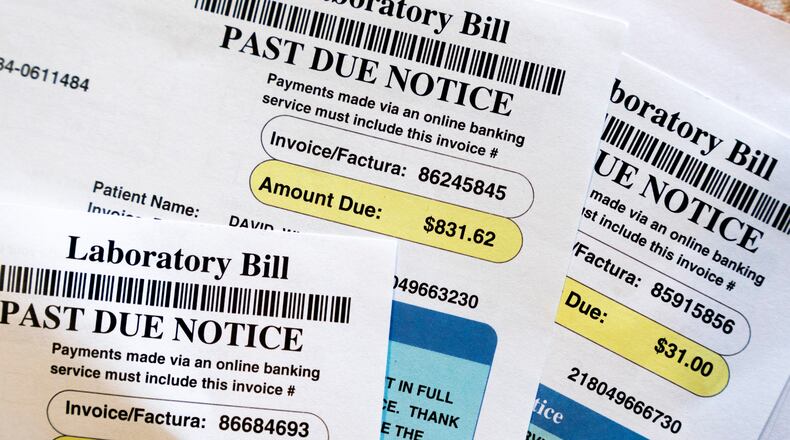Zachary Taylor, the director of government relations for the Consumer Data Industry Association, told the committee that a state law blocking medical debt reporting would be in conflict with the federal Fair Credit Reporting Act.
The FCRA, Taylor said, “preempts any state legislation that attempts to limit or prohibit a consumer reporting agency from including medical debt information in a consumer report” and “likewise preempts any state legislation that attempts to limit or prohibit the furnishing of medical debt information to a consumer reporting agency.”
Other states have already passed laws with similar intents, though those laws are either too new to gauge or have been held up in court, Ohio Bankers League Vice President of State Government Relations Don Boyd told the committee.
Boyd, who testified as an interested party on behalf of his organization, said his primary concern with H.B. 257, as drafted, was what he framed as a too-expansive definition of medical debt.
The bill currently defines medical debt as “an obligation of a consumer to pay an amount for the receipt of health care services, products, or devices including hospital, surgical, and medical expenses.” Boyd said the definition creates “uncertainty in cases where general credit products (such as credit cards or personal loans) may be used for mixed purposes, some of which are medical.”
Committee chair and Republican joint sponsor of the bill Rep. Jean Schmidt, R-Loveland, said there will be a forthcoming update to the bill’s definition to narrow down what sort of medical debt would actually be capped at 3% and hidden from credit reporting agencies, should the bill pass.
Schmidt described some of her own reasons for bringing the bill. She recently sustained a stress fracture in her knee and lamented how quickly the bills can pile up.
“I’d like to say medical debt is an issue separate from consumer debt, and it can happen very quickly,” Schmidt said. “If you could see the mountain of bills on that. Now, I can afford it, but somebody else may not be able to.”
The question of how separated medical debt is from consumer debt was a point of debate among lawmakers.
H.B. 257 joint sponsor Rep. Michelle Grim, D-Toledo, referenced studies that have found medical debt to be ”a poor indicator of credit worthiness."
Rep. Brian Stewart, R-Ashville, though, questioned the wisdom of presenting two metaphorical Ohioans, identical in every way except that one is saddled with tens of thousands in medical debt, at similar levels of risk for credit lenders.
“My concern is,” Stewart said, “if you’re not allowed to see that John Q. owes those $40,000 and you loan him the money anyway, and you get bit in the rear because he pays them instead of you or he’s just drowning in debt; if you get bit in the rear enough times loaning money to John Q’s because you’re not allowed to see or figure out their debt, is that eventually going to affect your willingness or ability to loan money to John Y., who has no debt?”
Boyd, who the question was posed to, agreed that the hypothetical presented a risk to the system. He noted that extending loans to a consumer already saddled with medical debt might also present a danger to that consumer, as it presents them with even more debt to pay off.
Boyd said members of the Ohio Bankers League understand that H.B. 257 poses a question of public good that will ultimately need to be decided by the state itself.
“At a certain point, it becomes a policy decision, and our members will try to figure out the best way to adjust to that,” he said.
For more stories like this, sign up for our Ohio Politics newsletter. It’s free, curated, and delivered straight to your inbox every Thursday evening.
Avery Kreemer can be reached at 614-981-1422, on X, via email, or you can drop him a comment/tip with the survey below.
About the Author

